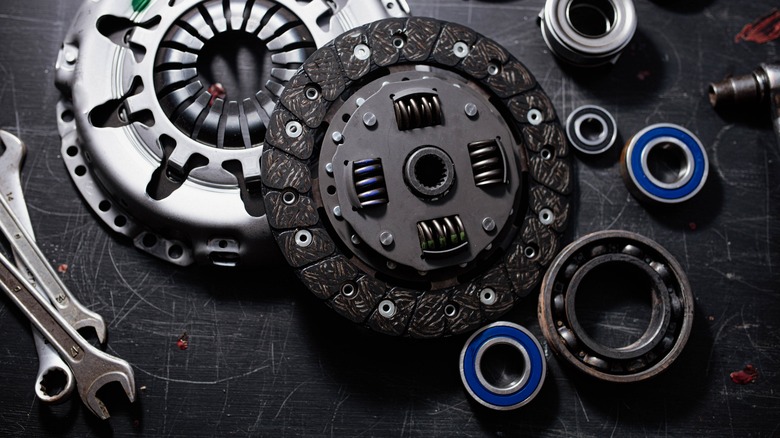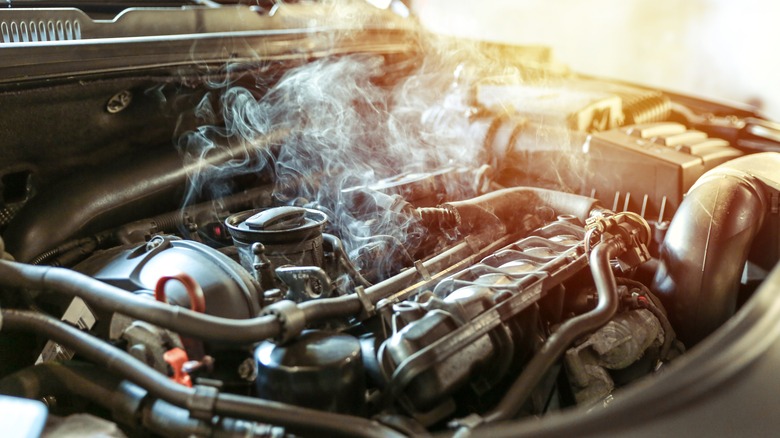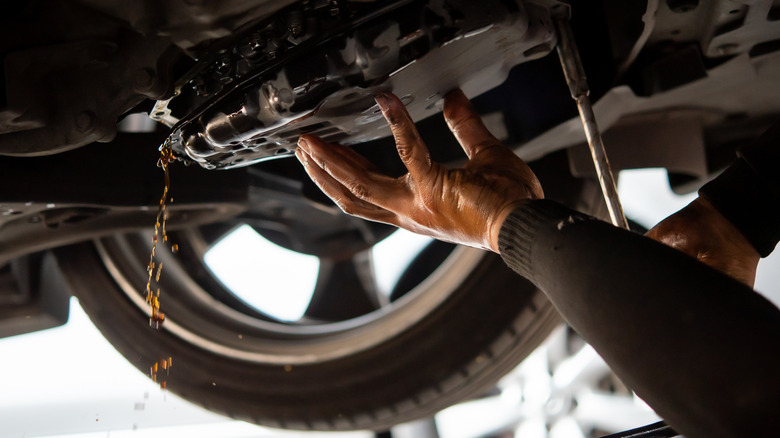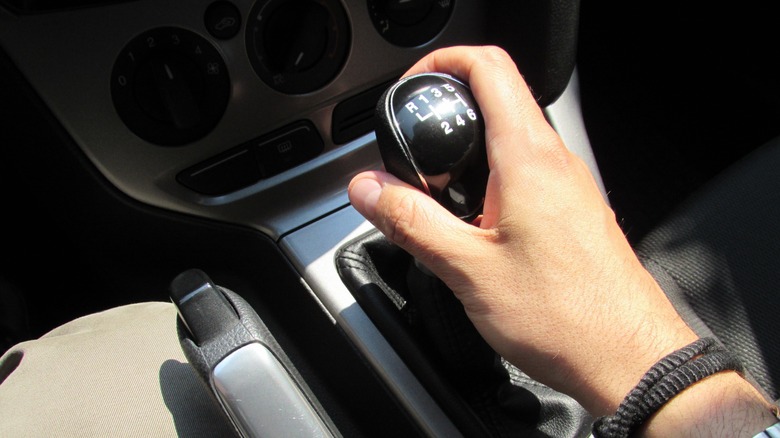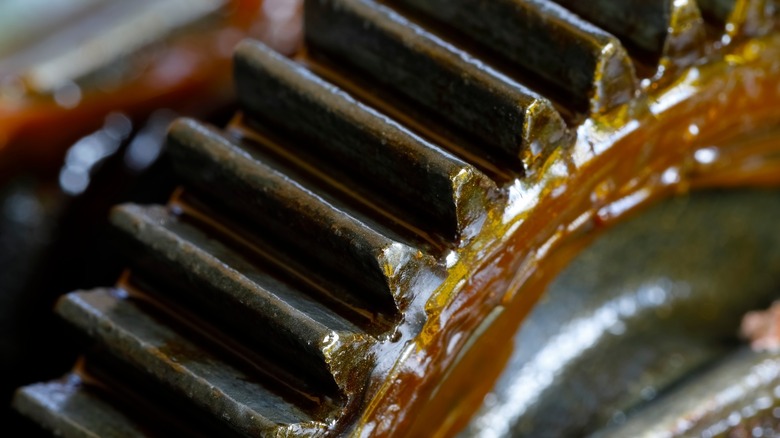5 Common Manual Transmission Problems (And How To Diagnose Them)
Plenty can go wrong with a car's transmission — there are a l lot of moving parts, after all. Though transmission problems rearing their metaphorically ugly heads will most likely mean a trip to your local mechanic, it doesn't necessarily mean the transmission is going bad or anything that extreme.
The important thing to do is note what exactly is happening, then work back from there to try and figure out the specific cause. That said, it's important to remember going into an assessment that you may not be able to solve every potential transmission issue on your own. Especially with a manual — they can be much more tricky to assess than an automatic.
Unless you're completely confident in your expertise, abilities, and equipment, it's recommended that you take your car to a shop no matter what might be causing your transmission woes. However, being able to narrow down the cause in advance can still give your mechanic a better idea of where to start looking.
It smells like it's burning
A burning smell that comes from anything that isn't supposed to be on fire is never good. There are a few potential causes — including engine troubles, burnt oil, worn-out brake pads, or an actual fire — but it could also have to do with the transmission.
If you detect a hint of sweetness mixed with the burning odor, chances are the transmission has started to overheat. That degree of warmth is likely the result of your transmission fluid being either too low or too dirty, which means it's time to check your fluid levels and condition.
Doing so with a manual transmission is easier said than done, but it can technically be handled at home with the right equipment and experience. If you're not comfortable lifting the car with a hydraulic jack, propping it up with jack stands, and sliding under the suspended car to wrench open the filler plug, best to take it to a professional instead. Regardless of the levels, if the fluid itself looks dark or gritty you're going to need to take your car to a garage to swap the old stuff in for a fresh batch.
Leaking fluids
A car can start leaking transmission fluid before levels get low enough to cause that burning smell. Keep an eye on the ground beneath your car for what AAMCO describes as a red liquid — though it acknowledges that not all transmission fluids are red, so it's best to make note of any fluids you notice puddling when you're parked in general.
A red or dark red puddle, which may or may not be gritty, with a sweet hint in its burning smell is a solid indicator that your transmission fluid is leaking, and you should take it in for servicing immediately. Any fluids collecting beneath your car that aren't verifiably something mundane like condensation from the A/C is reason enough to consider bringing your car to a mechanic.
Leaking transmission fluid is bad for the transmission as it's intended to keep everything lubricated and moving smoothly. When it starts to get low it can lead to damage. However, AAMCO warns that a leak can be pretty dangerous since transmission fluids can catch fire.
Slipping out of gear
One of the most immediately risky transmission problems is when it won't stay in gear because an unexpected drop into neutral can prevent you from accelerating. Depending on the situation, this can be a danger while on the road (this holds for automatics as well).
This is likely the result of one or more of the transmission's components (a bearing, the clutch, flywheel, etc.) wearing out and needing a replacement. It could also be caused by water getting into the normally sealed-off transmission system, say, from offroading or recent heavy rains with flooding. Or maybe it's the transmission fluid — again — which could be low, leaking, or in need of replacement.
In this case, it's less important to troubleshoot the cause and crucial to get it fixed right away. Should your transmission start to randomly drop out of gear, take the car to a mechanic as quickly and safely as possible.
Irregular sounds or shaking
Generally speaking, nobody knows the sounds of your car better than you. If you suddenly start to hear something you weren't hearing before, chances are there's a problem — and if the sound (or sounds) include a buzzing, clicking, clunking, humming, or "roaring" it could be your transmission is trying to tell you something.
Any of those sounds emanating from your transmission (engines can make similar noises, so it's a good idea to make sure you know the source before you act) might be an issue with your transmission's internals. AAMCO explains that the culprit could be damage to the transmission's gears or to one or several of the bearings. A buzzing sound could also indicate there's a problem with the seal on your transmission. It's yet another symptom of a possible transmission fluid leak or low fluid levels.
Regardless of the direct cause, noises coming from your transmission are a good reason to bring the car to a mechanic. Have a professional assess the situation and figure out exactly what's going on, then let them take care of it.
Trouble shifting between gears
When you have to put more physical effort into changing gears than you're used to, it's time to seek professional assistance. This could be caused by electrical issues leading to the transmission malfunctioning. Though it's not "technically" your transmission that would need fixing, that's one possible culprit.
Shifting between gears in either direction is supposed to be a smooth process when performed correctly. If it's not, there's probably at least one or two internal components in need of a replacement. It could be the transmission or the clutch itself. Maybe the clutch connection is a little loose, making it more difficult to disengage to leave its current gear.
No matter the cause, it's more than likely something will need replacing, and it won't be the kind of thing you can easily do at home ... unless you or a family member are a certified mechanic, anyway.
